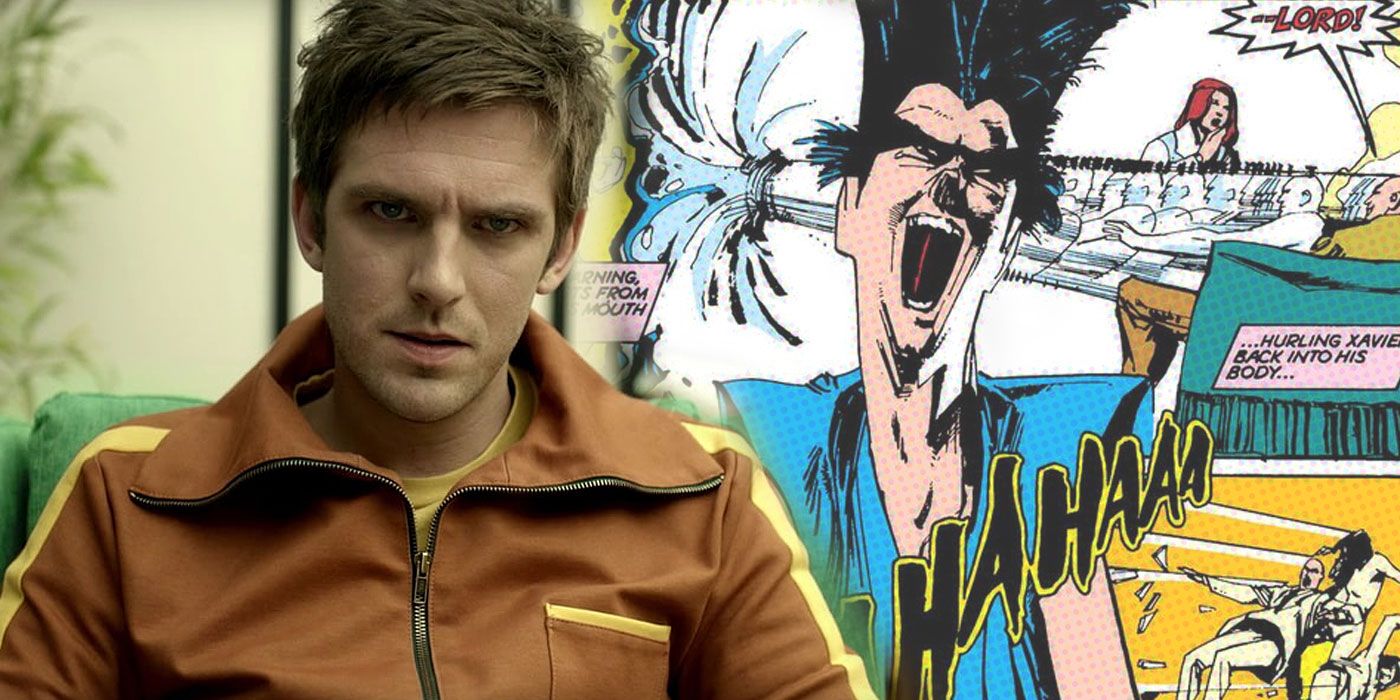If “Fargo’s” writer-producer Noah Hawley can turn a twenty-year-old Coen Brothers film into an award-winning, critically celebrated television sensation by coloring well outside the lines of the movie’s framework, what might he do with a deep-bench selection from the ranks of the X-Men’s extended family?
RELATED: X-Men Revolution: How Fox’s Franchise Has Entered a Bold New Era
“Legion,” the new not-quite-superhero show from Hawley and FX, will answer that question. The series tells the story of mentally disturbed but powerfully telekinetic David Haller, played by Dan Stevens, in a world apparently set just left of center of the traditional X-Men film universe. Hawley, who’s admittedly not a comic book obsessive, shared some of his vision for the show, which is more adventurous in its bold visuals, edgy characterizations and unorthodox storytelling than typical TV superhero fare.
On exploring Legion in the comic books and searching for creative inspiration:
Noah Hawley: What I always had from the genre – and from genre in general – is a sense of wonder, at the inventiveness, and the way you can play. Even if you look at “Battlestar Galactica” the remake, the idea that the robots were religious: that was such a fascinating idea. To say, on an existential level, “What is it really like to be these people?”
This idea that David and the comics has a multiple personality disorder, which is not something that we’re literally doing this year, but you are seeing facets of things that make you wonder whether this is all, as in “The Wizard of Oz,” a little bit of, “You were there, and you were there, and you were there…” and they’re all sort of parts of him, on some level.
On the influence of the unique, heightened visuals employed by Legion’s co-creator, Bill Sienkiewicz:
I think it’s a goal to reach. If you start there with a character, he becomes a lot less relatable, sort of right off the bat. I needed you to root for Dan and to empathize with Dan, and to feel like he’s an everyman on some level, and it could be you. So you need to pull people into the show in order to sort of work toward something that’s that heightened.
RELATED: Legion Co-Creator Bill Sienkiewicz Talks Off-Kilter Mutant’s TV Debut
On mapping out the dream logic of sequences taking place within Legion’s head:
There’s nothing on a white board with a lot of squiggly lines or anything. For me, the show is not an information delivery device, right? It’s an experience delivery device. There is information in there, but it can often be separated from its meaning. So you’re seeing things that are important, because he’s seeing them, but you don’t necessarily understand what they mean yet.
So it creates something that’s a little surreal, which is not something that TV normally does – since “Twin Peaks,” really, or “Hannibal,” which was surreal as well. Not to say there’s not information, and you’re going to understand down the line. But right now, what’s important is the experience you’re having of been in his mind.
On how the first season plays out in terms of ongoing storytelling:
It ends a chapter. Even though it’s a recurring series and not a limited series, there’s a beginning, a middle and an end to the first season, and there would be to the second season as well. I think it’s important to think about them that way.
On the commitment of star Dan Stevens:
The thing about Dan is he really embraced the genre, right? So a lot of times, if you’re forced to act with a tennis ball or whatever, it can be really off-putting for an actor. But I think he sort of implicitly accepted that that was part of the role, and he threw himself into it in a way that felt very grounded, and real, and emotional.
On how the word “mutant” applies in a world that may or may not include a version of the X-Men:
We obviously had a conversation based on the movies where, in the second to last movie, mutants became public knowledge, and our idea is that they’re not public knowledge. So it was a lot about “Where are we?” and “How do we play with those rules and everything?” I think that phrase is part of the identity of what this franchise is.
The other thing that “X-Men” has is a lot of alternate universes. And it’s not that I’m saying it’s one of those. I’m saying the rules are flexible enough that I can sort of place the show and say, “Just watch it and experience it, and then we’ll talk.”
Starring Dan Stevens, Aubrey Plaza, Katie Aselton, Jeremie Harris, Bill Irwin, Rachel Keller and Amber Midthunder, season one of “Legion,” will consist of eight episodes and debuts February 8 on FX.

